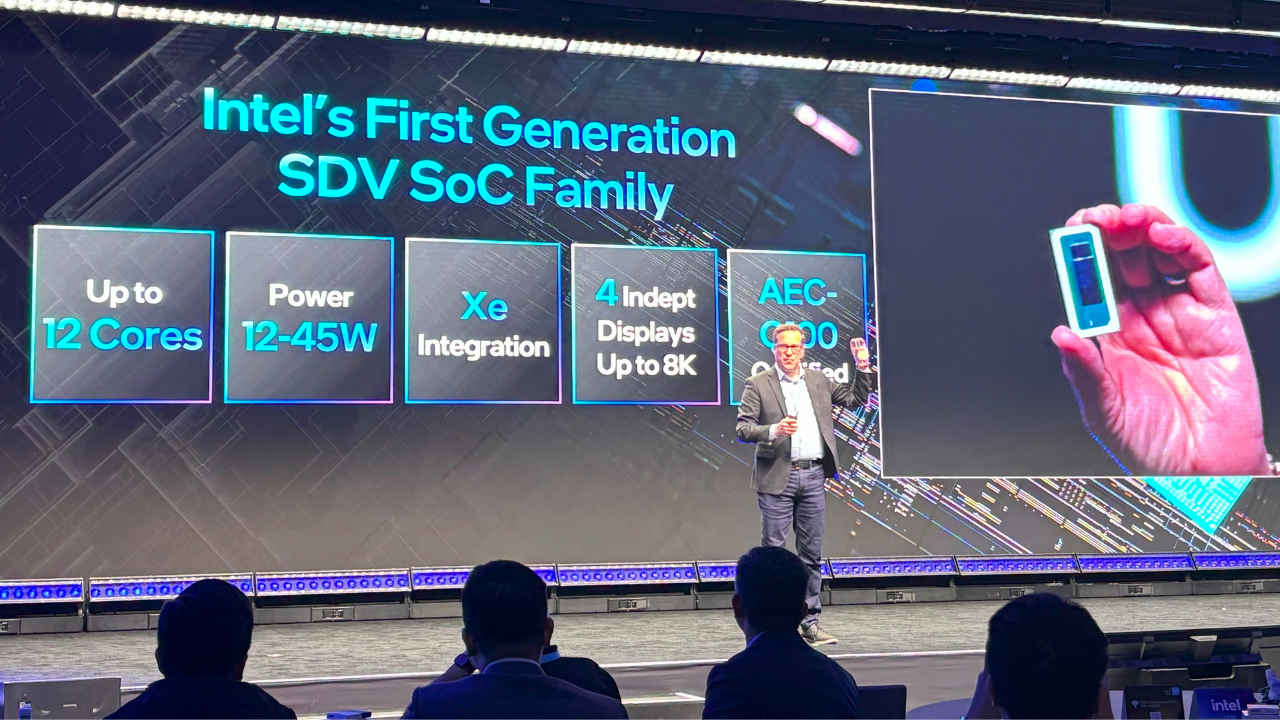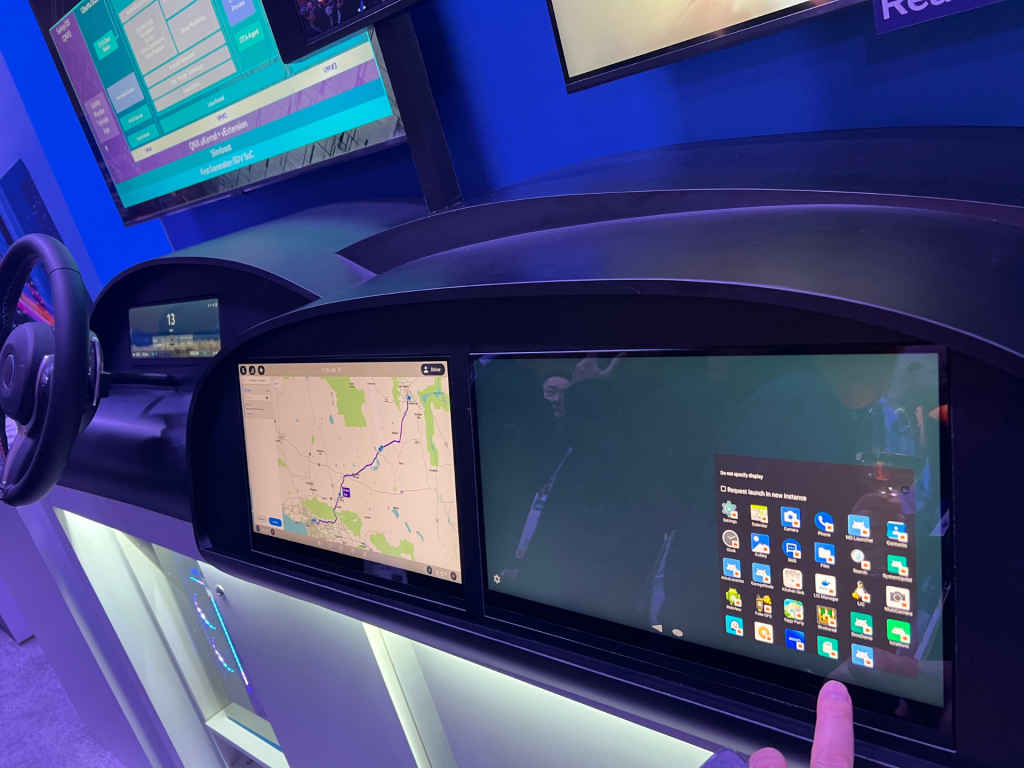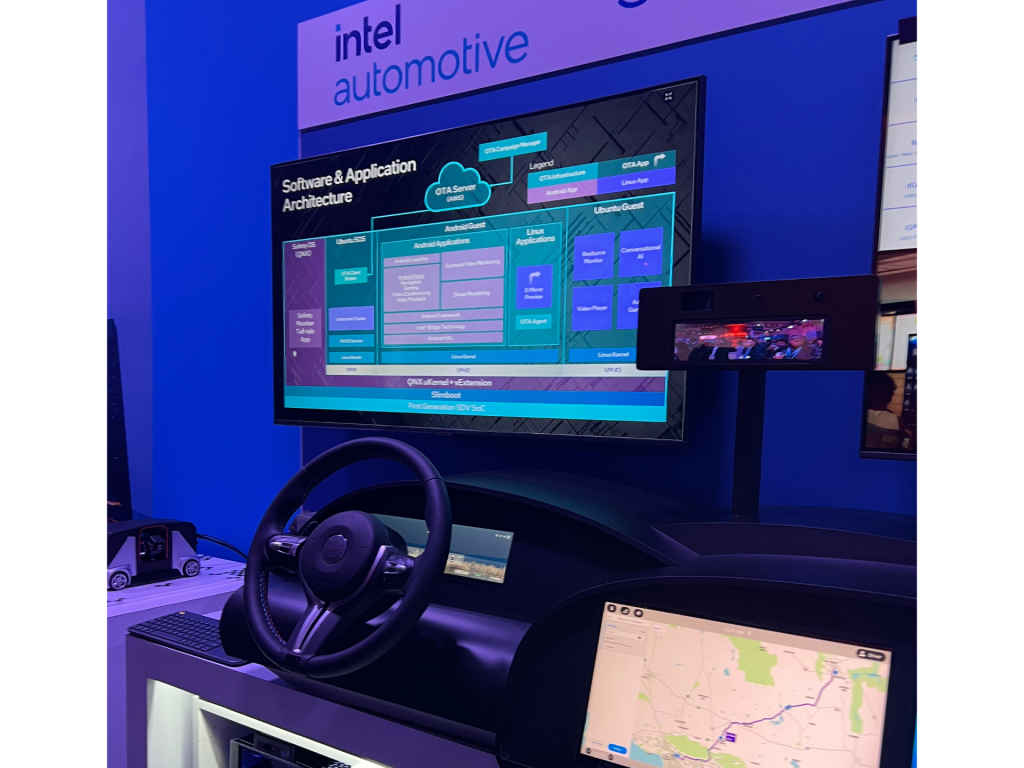Intel AI Inside: Intel AI hits the road with 12 cores driving your car’s future
Intel announces its expansion into the automotive sector, acquiring Silicon Mobility for AI-driven electric vehicle technology and introducing software-defined vehicle chips
The new Intel SDV SoCs will enable immersive in-vehicle AI experiences and driver/passenger monitoring, marking a significant step in automotive AI integration
Intel's partnership with Zeekr and the development of an open UCIe-based chiplet platform highlight its commitment to advancing the software-defined vehicle industry

At CES 2024, Intel revealed its strategic expansion into the automotive sector, aiming to embed its AI solutions across the industry. Intel CEO Pat Gelsinger took the stage to announce the acquisition of Silicon Mobility, a company specializing in intelligent electric vehicle (EV) energy management technology. The deal sets the stage for Intel to introduce a new family of AI-powered software-defined vehicle chips, with Zeekr as the first OEM partner to embrace these chips, planning to integrate generative AI-driven experiences into their next-gen vehicles’ living spaces.
 Survey
Survey
New Intel AI-enhanced software-defined vehicle (SDV) SoCs will enable in-vehicle AI such as GenAI and camera-based driver/passenger monitoring. The first generation of the Intel SDV SoC family will have up to 12 cores with a power-envelope ranging from 12W to 45W. Jack Weast, the Vice President and General Manager of Intel Automotive stressed the company’s comprehensive approach to dealing with automotive challenges. By integrating innovative AI solutions into vehicle platforms, Intel aims to support the industry’s shift towards electric cars and ensure energy is used sustainably, as shown in the Silicon Mobility acquisition.

Moreover, Intel is dedicated to advancing software-defined vehicles (SDVs) due to the growing demand for immersive in-car experiences and the rise of electric cars. They’re working on an open UCIe-based chiplet platform for SDVs, collaborating with Imec to guarantee the quality and reliability of these technologies, which are crucial in the car industry. Intel is also leading the development of a new global standard for managing power in EVs, highlighting its commitment to driving improvements across the industry.
Also read: CES 2024: Intel 14th-Gen Raptor Lake refresh brings performance boost to gaming laptops
Presently, Intel’s system-on-chips (SoCs) are already running in more than 50 million vehicles, powering functions like entertainment systems and digital displays. Looking ahead, Intel aims to expand its roadmap with AI-boosted “whole vehicle” solutions to enhance scalability, software-defined features, and sustainability in the automotive industry.
The recent acquisition of Silicon Mobility has positioned Intel to introduce a fresh range of AI-powered software-defined vehicle chips. Zeekr, an original equipment manufacturer (OEM), will be the first to use these chips to upgrade their in-car experiences.

The integration of innovative AI solutions into vehicle platforms is crucial as the automotive industry moves towards electric vehicles and sustainable energy management, according to Jack Weast, Intel Automotive’s Vice President and General Manager.
This push aligns with Intel’s dedication to advancing software-defined vehicles (SDVs). They’re developing an open UCIe-based chiplet platform for SDVs and collaborating with Imec to ensure top-notch quality and reliability. Their leadership in establishing a new international standard for EV power management displays their commitment to industry-wide progress.
Also read: Get ready for the On-Device AI boom in 2024 and beyond
Intel’s SoCs are already playing key roles in over 50 million vehicles, and their plans involve creating AI-enhanced “whole vehicle” solutions, aiming for better scalability, software-defined features, and sustainable advancements in the automotive landscape. This new line of SoCs packs AI acceleration capabilities from Intel’s AI PC roadmap, empowering essential in-car AI applications for monitoring drivers and passengers, marking a new phase in automotive intelligence.

In a noteworthy demonstration, Intel showcased the simultaneous operation of 12 advanced tasks on these SoCs. They managed various functions like generative AI, video conferencing, and gaming, running smoothly across different operating systems. This demonstration highlighted how carmakers can streamline their setups, boosting efficiency, manageability, and scalability while integrating custom solutions and AI applications seamlessly.
The significance of these AI-boosted SDV SoCs lies in their combination of AI PC and data center technologies. This integration marks a significant stride towards establishing a truly software-defined vehicle architecture, shaping a future automotive industry marked by increased intelligence and adaptability.
Soham Raninga
Soham Raninga is the Chief Editor for Digit.in. A proponent of performance > features. Soham's tryst with tech started way back in Dec 1997, when he almost destroyed his computer, trying to make the Quake II demo run at >30FPS View Full Profile